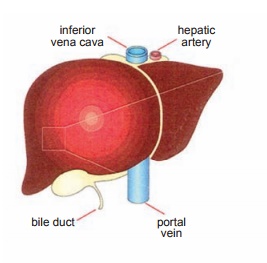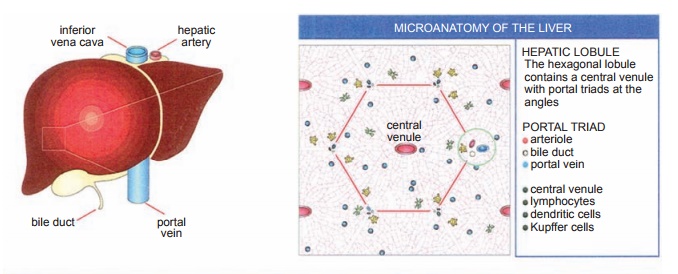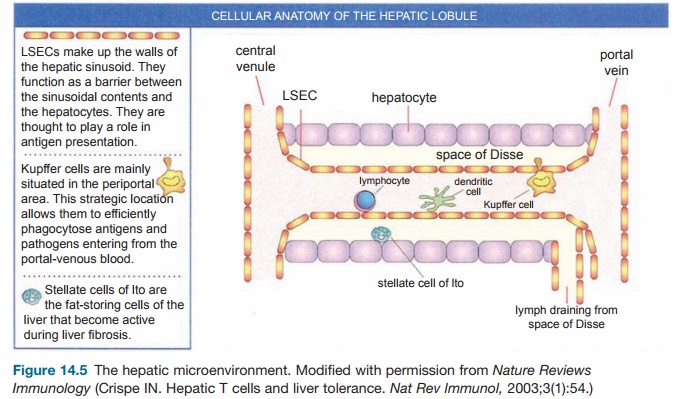Chapter: Essential Clinical Immunology: Immunological Aspects of Gastrointestinal and Liver Disease
Liver Immunology

LIVER IMMUNOLOGY
The liver is essential in metabolism, the removal
of pathogens and antigens from the blood, and the synthesis of proteins. As a
result, it is exposed to numerous antigens and by-products of gastrointestinal
metab-olism on a daily basis. It is critical that the liver is able to mount
active responses to eliminate microorganisms while avoiding unnecessary immune
responses toward innocuous antigens, which could also result in injury to
hepatocytes. Similar to the gut, the liver has a natural tendency toward immune
tolerance rather than the induction of immunity.
Anatomically, the liver is divided into functional
units termed hepatic lobules (Figure
14.5). These lobules are hexagonally shaped and consist of a central venule or
vein and portal triads at its corners. Within the lobule, the hepatic sinusoids
– the walls of which comprise liver sinusoidal


endothelial cells (LSECs) – serve as a res-ervoir
for the mixing of blood from both portal venous and arterial blood. Kupffer
cells and lymphocytes are found in the sinusoidal lumen, adhering to the LSECs.
Although the LSECs are fenestrated, it appears that they serve as a barrier to
prevent leucocytes from reaching hepato-cytes. The LSECs have a role in
receptor-mediated endocytosis of macromolecules, which are believed to be
subsequently transported to hepatocytes for metabo-lism. The LSECs are also
believed to con-tribute to the activation of CD4+ and CD8+ cells as
they constitutively express all mol-ecules necessary for antigen presentation,
and hence allow for immunity to harmful pathogens.
In vitro experiments have suggested that
endothelial cells activate naïve T cells, but do not differentiate into
effector T cells. Rather, these cells have been found to secrete cytokines and
express a pheno-type that is consistent with the induction of tolerance. Other
cell populations such as dendritic cells and Kupffer cells may contribute to
tolerance induction by dele-tion or apoptosis of T cells.
Related Topics